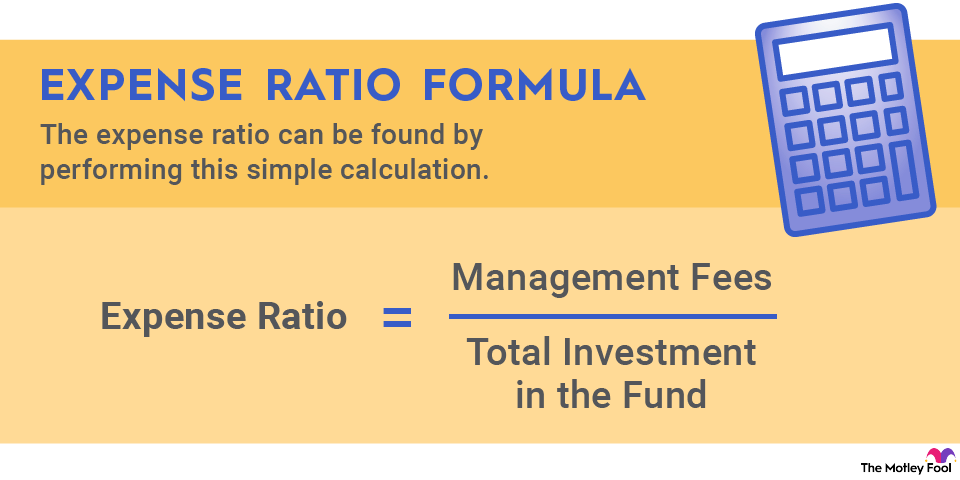Net operating income is an important financial term -- one often misunderstood. There are many different sorts of income (also known as profits) on any company's income statement, and they all serve different purposes in your financial analysis. So let's get specific and dig into the details of net operating income, or NOI.

Breaking down net operating income
In a nutshell, net operating income is a company's direct profit from its core operations. Boosting this metric is all about running your chosen business more efficiently, generating stronger revenues while keeping a tight grip on your day-to-day expenses.
You start the NOI calculation from gross profits (revenues minus cost of revenues) and then subtract the direct operating costs involved in earning that revenue.
I'm talking about selling, general, and administrative expenses; sales and marketing costs; and research and development budgets. It also accounts for industry-specific operating costs, such as shipping expenses for e-commerce retailers or fuel costs for shipping services.
However, the analysis stops before reaching financial management items like taxes, interest expenses, depreciation, and amortization. Unless you're running a bank, those items are not part of your core business.
Net operating income isn't exactly the same thing as earnings before interest and taxes (EBIT). That metric takes a couple of extra steps down the income statement. EBIT accounts for depreciation and amortization costs, while NOI doesn't.
NOI is even more similar to earnings before interest, tax, depreciation, and amortization (EBITDA). Here, the difference is EBITDA is a commonly used metric with clearly defined components, while net operating income is open to adjustments as different companies may include different items in their core operations.
Hence, net operating income gives you a cleaner view of the company's business operations without applying the long-term costs of infrastructure, capital equipment, rental fees, and other business-related property expenses.
A high net operating income typically signals an efficient operation wherein the costs are well-controlled, while a low one may suggest rising expenses are chipping away at profits. Companies in the middle of an ambitious cost-cutting program should see stronger NOI results as the new strategy takes effect.
Why net operating income matters
Net operating income isn't just another line on a financial statement. It's an essential measure of a company's operational profitability and efficiency, going straight to the heart of actual business quality.
Earnings Before Interest and Taxes (EBIT)
The company's fiscal management strategy is also important, of course, but NOI isn't the tool you need for that purpose. Yardsticks and measuring cups serve very different purposes, but both are helpful measuring tools. Likewise, net operating income highlights a different part of the financial puzzle from other metrics, such as EBIT and free cash flows.
Net operating income helps us understand how well a company's management is controlling operational costs and how sustainable its business model is without the fiscal noise of tax, interest expenses, and long-term write-downs of capital expenses.

How you can use net operating income
Can the company you're looking at control its operating expenses effectively? How efficient is its revenue generation? These are questions net operating income can help answer.
You can track how the company's NOI has changed over time, looking for companies with stable or improving operating efficiency. You could also compare and contrast net operating income results between companies in similar situations, showing how effectively a number of head-to-head competitors manage their businesses facing comparable markets and challenges.
Despite its clear utility for these handy purposes, NOI is not as commonly used as EBIT, net income, and cash-flow figures. Few companies report it, so you'll need to do your own calculations in most cases. On the upside, the insights you gain from this uncommon analysis could give you a leg up on the investor community at large.
Viewing UPS through the NOI lens
Let's look at shipping service giants FedEx (FDX +0.14%) and UPS (UPS -0.12%) with the help of net operating income. Here's how UPS presented its operating costs for the full fiscal years of 2022 and 2021:
UPS | 2022 | 2021 | YOY Change |
|---|---|---|---|
Revenue | $100,338 | $97,287 | 3.1% |
Compensation and benefits* | $47,781 | $46,707 | 2.3% |
Repairs and maintenance | $2,515 | $2,443 | 2.9% |
Depreciation and amortization | $3,188 | $2,953 | 8.0% |
Purchased transportation* | $17,653 | $19,058 | -7.4% |
Fuel* | $6,018 | $3,847 | 56.4% |
Other occupancy* | $1,818 | $1,698 | 7.1% |
Other expenses | $8,271 | $7,771 | 6.4% |
NOI (only operating costs highlighted with asterisks) | $40,836 | $41,337 | -1.2% |
Costs excluded from NOI | $13,974 | $13,167 | 6.1% |
EBIT (includes all operating costs) | $13,094 | $12,810 | 2.2% |
Casting an NOI light on FedEx
As you can see, fuel costs skyrocketed in 2022, while other operating costs trended higher due to global inflation. UPS managed to increase its EBIT, but NOI profits fell by 1.2%. In other words, it looks like UPS failed to run a more profitable shipping business in 2022. Instead, the company boosted its operating profits in 2022 by holding back on capital expenses and other accounting tricks.
Well, 2022 was a difficult year with runaway global inflation and other economic challenges. So how did FedEx tackle the same environment?
FedEx | 2022 | 2021 | YOY Change |
|---|---|---|---|
Revenue | $45,814 | $42,078 | 8.9% |
Salaries* | $16,435 | $16,217 | 1.3% |
Purchased transportation* | $6,322 | $5,744 | 10.1% |
Rentals and landing fees* | $2,568 | $2,296 | 11.8% |
Depreciation and amortization | $2,007 | $1,946 | 3.1% |
Fuel* | $4,418 | $2,461 | 79.5% |
Maintenance and repairs | $2,120 | $2,228 | -4.8% |
Business realignment costs | $278 | $116 | 139.7% |
Intercompany charges | $1,997 | $1,996 | 0.1% |
Other | $6,747 | $6,264 | 7.7% |
NOI (only operating costs highlighted with asterisks) | $16,071 | $15,360 | 4.6% |
Costs excluded from NOI | $13,149 | $12,550 | 4.8% |
EBIT (includes all operating costs) | $2,922 | $2,810 | 4.0% |
FedEx increased its net operating income year over year, actually outperforming its EBIT gains. Mainly, the company canceled out the higher fuel costs and airport charges by issuing lower salary increases to its staff than UPS did to theirs.
Related investing topics
Here, the NOI tool helped us highlight how UPS and FedEx approached the challenges of 2022 in different ways. FedEx found ways to increase its net operating income, even in a tight economy with inflation-boosted costs. Its reliance on limited pay increases could lead to lower NOI in the long run if the slow salary increases result in unmotivated workers.
So FedEx investors should keep an eye on the long-term NOI development. But so far, so good -- FedEx outperformed UPS on the net operating income line in 2022.


















